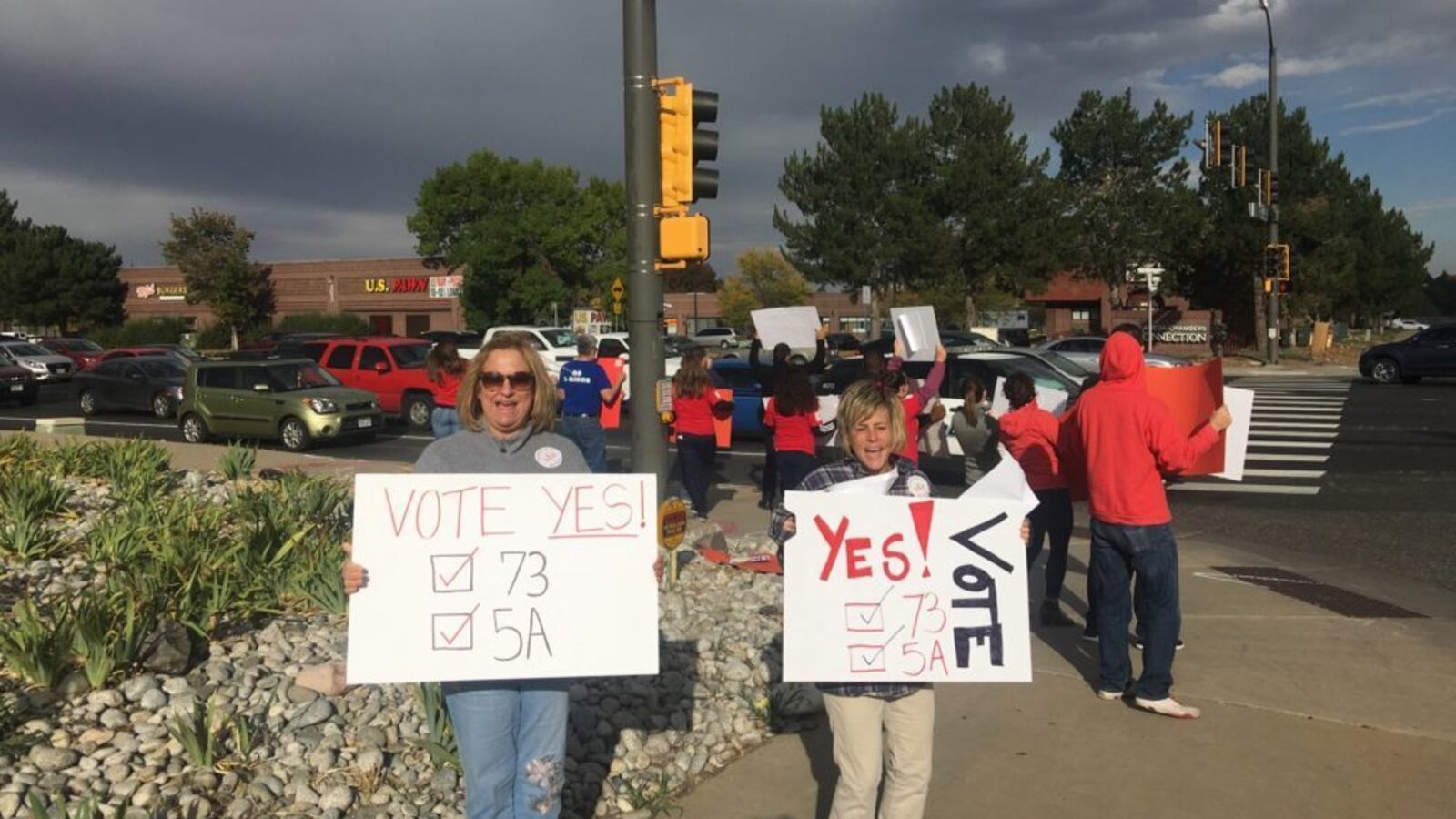Maria Vasquez wants to keep her children active after school, but she has limited options.
Many after-school sport clubs or programs charge fees her family can’t afford. And she used to take her children to the neighborhood park, but she stopped after seeing people hanging out there smoking marijuana and even having sex.
So she often keeps her children home, but she worries about them and other children spending too much time watching television or fixating on computer screens.
“It’s not that we want to give the responsibility to the schools,” she said. “But I want the people that they are around to be safe, and the place they are in to be safe. I don’t have other possibilities right now.”
She sees one hope.
Her school district, Aurora Public Schools, is asking voters to pass a $35 million mill levy override — a type of property tax that would generate ongoing revenue for local schools. If passed, the tax would fund several priorities, including after-school activities for elementary schools. The measure would cost property owners an additional $98.64 per year for every $100,000 value of their home.
Some Aurora parents, including Vasquez, organized through the nonprofit parent advocacy group RISE, have been campaigning door to door, telling voters how the district’s Measure 5A would benefit their children.
The district did not respond to a request for an interview about why it will prioritize after-school elementary programs if the tax measure passes.
But in a written statement, district officials said that they don’t offer any districtwide after-school programs, although some schools work with outside groups likes the YMCA to provide after-school activities. If voters pass the tax request, the statement said, “we would go through a RFP [bidding] process to determine the structure of the after-school programming.”
Critics of school tax measures have pointed to rising administration costs and a lack of transparency in how the money is actually spent.
Vasquez said she supports all of the district’s planned uses for the money.
Another mother, Araceli Hernandez, said that she is always searching for additional educational activities for her children. They enjoy it, she said.
But for now, her options are just a Boy Scout program, one day a week, at her elementary school. The rest of the time she works with her children at home or at the community center in her neighborhood.
Hernandez also welcomes Aurora’s proposal to devote some of the tax proceeds to additional mental health professionals and staff training.
One of her sons has been bullied for years and needs help, she said, but the school psychologist this year is only around some days each week.
“Teachers need more training to know how to respond and they need psychologists to help the children,” Hernandez said.
Besides funding for after-school programs and improving mental health resources, the district has also said the tax increase would pay for seat belts on school buses and a raise for teachers.
Vasquez said she believes an investment from the community in schools and the students will improve the city in the long run by improving the likelihood students can become contributing members of society.
“Tomorrow, they may be able to repay it by being good people who stay in their community and buy houses here to give back,” Vasquez said. “They’ll know the community cares about them.”

